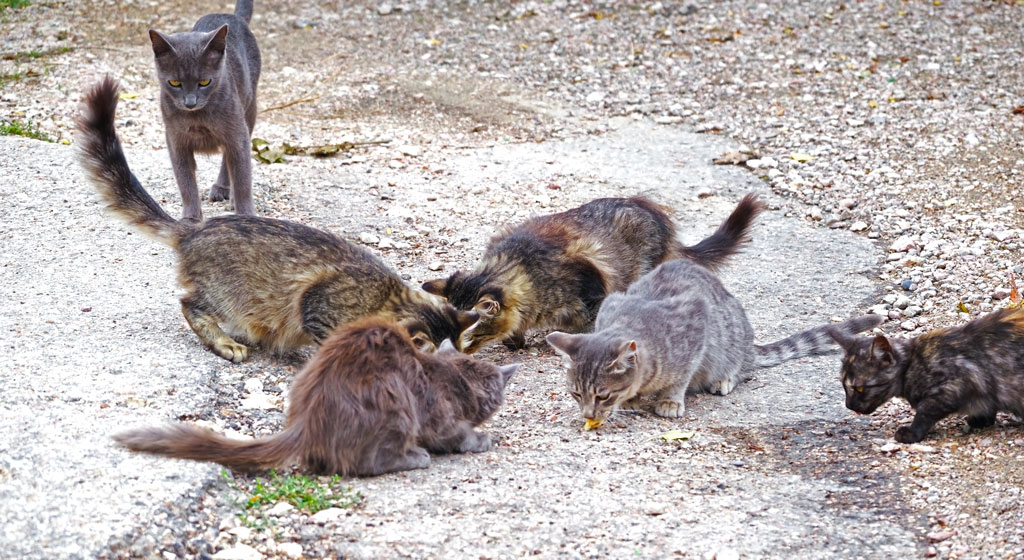
Granite Shoals residents are being asked not to feed feral cats due to a link between the felines and a rise in coyote activity, disease transmission, and destruction to native wildlife. That plea is coming from the city’s Wildlife Advisory Committee, which is trying to alleviate the burden on the city in battling the problem.
” … It’s important to stop feeding these animals,” committee member Billy Kelly said. “You just keep making it worse and worse the more you feed them.”
Coyote sightings across the city are reportedly increasing, which brought the feral cat issue to the committee’s attention. Texas-certified trapper Trenton McNeil said coyotes are often drawn to the large quantities of food left out for the cats.
“If those coyotes know that food is on the back porch, they’re going to come,” he told DailyTrib.com. “(The cat food) could become a very highly sought food source for coyotes, raccoons, opossums, and skunks. As a community, (Granite Shoals residents) need to make sure that they don’t leave the food out 24/7.”
There have been no reports of coyotes eating pets or interfering with humans in Granite Shoals, but McNeil said the risk increases as the predators become more accustomed to humans. The North Texas city of Frisco dealt with a string of coyote attacks on humans in 2019 due to the intentional and unintentional feeding of feral cats.
Well-meaning people who leave food out for cats can unintentionally cause harm to wildlife.
“Feeding stations intended for cats actually attract a variety of animals, such as rats, raccoons, skunks, opossums, and foxes, putting these animals in unusually close contact with humans, cats, and each other,” reads an excerpt from a Texas Parks and Wildlife Department report on the impacts of feral cat colonies.
That same report stated that feral and free-roaming cats are likely the “single greatest source of human caused mortality for U.S. birds and mammals.” An estimated 1.4 billion to 3.7 billion native birds and 6.9 billion to 20.7 billion mammals are killed by cats each year.
“(Cats) are one of the most destructive species on the planet, just because of all the native wildlife they kill,” said McNeil, the trapper.
Diseases potentially spread by feral cats are a contentious issue nationally. Feline advocates, such as Alley Cat Allies, claim diseases like rabies and toxoplasmosis are rarely transmitted by wild cats. Other sources, including the U.S. Department of Agriculture, report that feral cats likely spread disease among household pets and potentially humans, depending on population densities.
Kelly, of the Wildlife Advisory Committee, voiced his personal concerns with feral cat colonies.
“I have a dog, I have a little puppy dog, and I don’t want him eaten by a coyote or catching a disease from a cat,” he said.
LESSEN THE IMPACT OF FERAL CATS
Granite Shoals has an ordinance regulating the feeding and care of feral cats within city limits that provides guidelines for how to do it legally and with minimal impact on the city. The Wildlife Advisory Committee also advises pet owners who feed their animals outside ensure food is brought inside overnight.
The nonprofit Hill Country Cats offers a trap-neuter-return program in Burnet and Llano counties. Feral cats are trapped by residents in cages provided by the group and brought to a volunteer veterinarian for a low-cost spay or neuter surgery and rabies vaccination. The animals are then returned to where they were trapped. Contact [email protected] or 830-598-9883 for more information.
